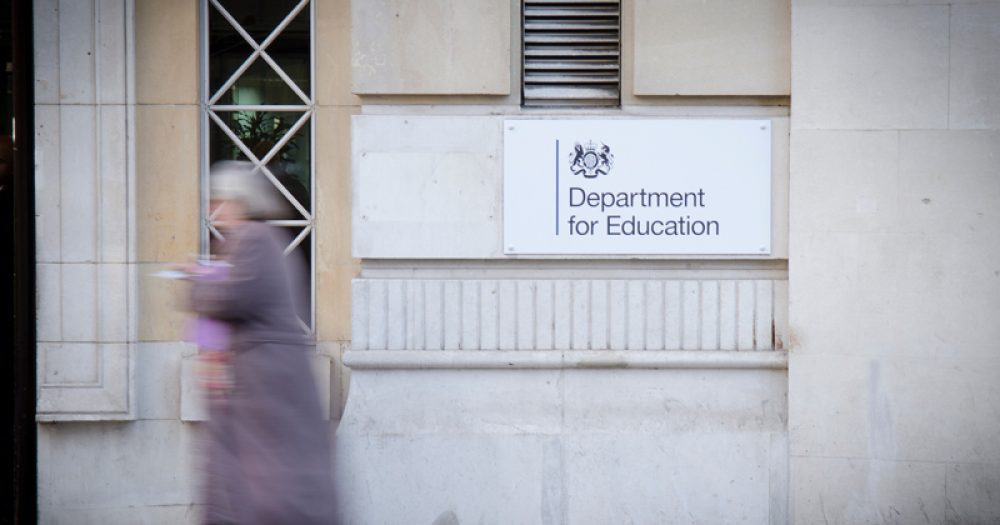The government issued guidance on the eve of the national lockdown for schools – here’s what you need to know.
1. Face mask requirement for secondaries
Pupils and staff in all schools where year 7 and above are educated should wear face masks when “moving around the premises, outside of classrooms, such as in corridors and communal areas where social distancing cannot easily be maintained”. This also applies to these pupils when travelling on dedicated school transport.
However, the guidance goes on to say that “some individuals are exempt from wearing face coverings and we expect adults and pupils to be sensitive to those needs”.
The government said schools have until Monday to introduce the changes.
Coverings are not mandated in primary schools and other settings that teach year 6 and below. But the government said these schools continue to have “discretion” to recommend the use of face-coverings for adults on-site where social distancing is “not possible”.
2. Contain framework suspended – ‘no plans’ for rota
The DfE has also confirmed that the “Contain framework”, which brought in the rules on face coverings in local lockdown areas, will not apply during the national lockdown.
Before the national lockdown, schools in areas subject to local lockdowns were tier 1 of the Contain framework, which requires masks to be worn in secondary communal areas.
Under tier 2 of the framework, secondary schools would have been moved onto rota systems. Tiers 3 and 4 involved wider closures.
The DfE said the Contain framework would apply again once national lockdown is lifted, with more detail “in due course”.
The department also insisted there are “currently no plans for school closures or to implement rota systems”.
3. Extremely vulnerable to work from home …
Government guidance said workers considered clinically extremely vulnerable should work from home or if they can’t, not to go to work at all.
The DfE’s specific guidance on these staff stated they are “advised” to work from home. When asked about the discrepancy in statements, the DfE said the difference in language was “incidental” and the rules are the same for all workers.
Staff in this category should “talk to their employers about how they will be supported, including to work from home where possible”, the guidance added.
4. … but most children no longer need to shield
The guidance states that most children originally identified as clinically extremely vulnerable “no longer need to follow original shielding advice”, and that parents should speak to their child’s GP or specialist clinical.
However, those children whose doctors confirm they are still clinically extremely vulnerable “are advised not to attend education whilst the national restrictions are in place”. Schools will need to make “appropriate arrangements” to enable them to learn at home, the guidance adds.
Children and staff who live with someone who is clinically extremely vulnerable, but who are not clinically extremely vulnerable themselves, can still attend. Those considered clinically vulnerable, but not extremely vulnerable, can also still attend.
5. School sports are mostly allowed
Schools have “flexibility” to decide how any physical education or activity is provided. Sports whose national governing bodies have developed guidance alongside government rules are permitted, however no competition between different schools is allowed.
Guidance states outdoor sports should be prioritised, or large indoor spaces used to maximise natural ventilation flows, with “scrupulous attention to cleaning and hygiene”.
External facilities can be used in line with government guidance, and schools can work with external coaches or organisations for curricular activities.
Schools offering extra-curricular activities should “only do so where it is reasonably necessary to support parents to work, search for work, or undertake training or education, or where the provision is being used for the purposes of respite care”.
Music, dance and drama can be undertaken in school so long as safety precautions are undertaken.








Your thoughts